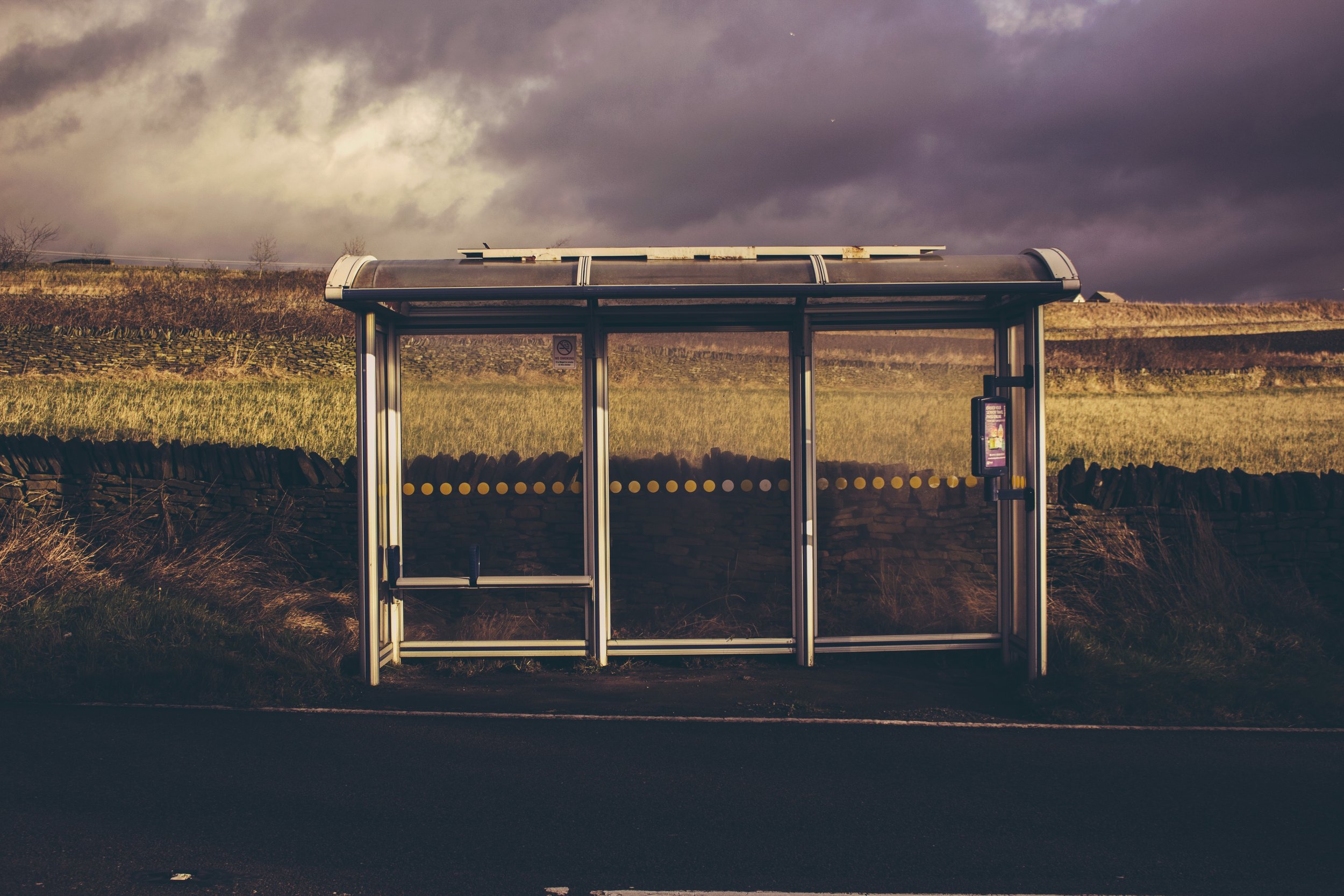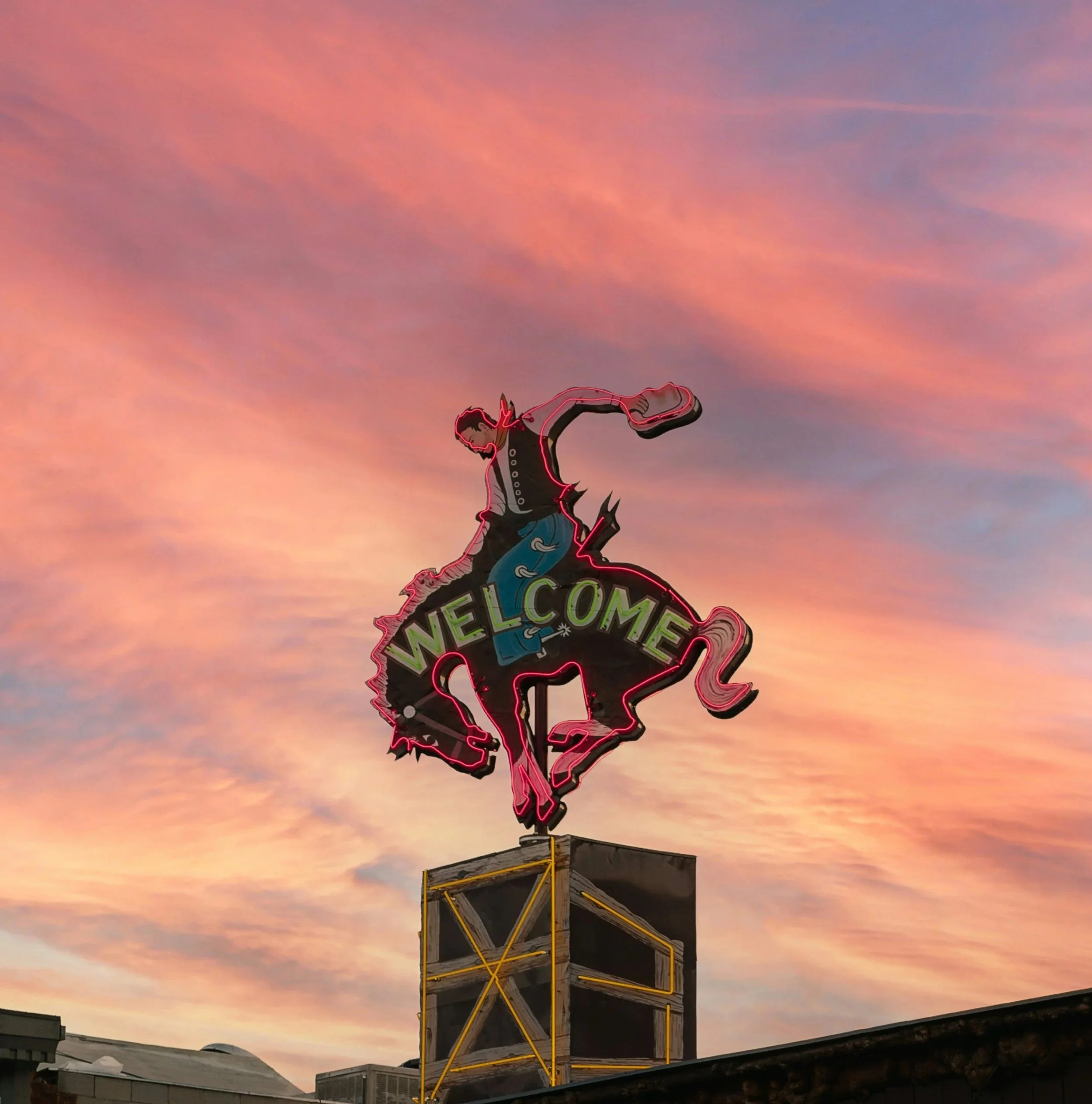To the Passenger Who Sat Elsewhere

I was halfway through my journey home when the bus pulled up at your stop. The front door clicked open, but you didn’t step in. A minute passed. Then two. When you finally appeared, I understood why.
You looked to be in your 70s, or even 80s. The skin of your arms was stretched taut with the weight of the grocery bags you carried. If this was home, Uganda, I would’ve jumped to my feet and relieved you of your load. Or better, your grocery shopping would’ve been taken care of by someone young and agile in the family. You would be lounging under a mango tree with a radio nearby, listening to songs by Ogwang Clipper, and reminiscing about the days when music was still music.
But this was the United States. It was the Midwest. I was just two weeks old there, freshly arrived for my Ph.D. studies at the University of Nebraska-Lincoln. I wasn’t sure what reaction I would draw by taking bags from your hands so you could sit unhindered. Suspicion? Applause? Alarm? Confrontation? I didn’t want to find out, so I sat and kept my smile on.
I was sure of one thing: Lincoln had a slow pace of life—a relief from the adrenaline-high New York where I had spent the past three years. When I first came here for a school visit in June 2022, it was the air that wooed me first. It smelled clean. Then I saw the empty fields and tall abundant trees and vast plantations of corn. I was enchanted. It drew me back to the life I knew in Gulu—a place where the wind had room to stretch without running into concrete or skyscrapers or too many people; a place that didn’t conceal its moon and stars at night with too much electricity. A place flat but still proud of its small pretty hills: Guru Guru, Ajulu, Kilak.
I quickly learned that the easiest way to get around Lincoln was to take the bus. Most people drive in this city, but I couldn’t afford a car yet. I didn’t mind the bus. As a student, I could take rides for free. Plus, the bus ride was an opportunity for me to learn about Nebraskans. Like how most people said thank you to the bus drivers as they alighted, and how bus drivers chanted have a good day! to their passengers. Or how the bus stayed quiet for most of the ride, without any awkwardness of the silence.
On these bus rides—to school or to Walmart for groceries, or from a doctor’s appointment like it was the day we met—I understood how small Lincoln was. Google said about 300,000 people lived in the city. I saw it in how half-full many of the buses were, and how we drove for miles without seeing a troop of pedestrians on the sidewalk. Instead, all I saw were cars, a passenger or two at a bus stop, a biker or two down a trail, a shopper or two entering Super Saver. I liked it that way.
But the day we met, on August 16, 2022, the No.40 bus was surprisingly almost full. Every seat was occupied except for the long one on which I sat, facing the aisle. There was room for two more people to sit next to me. As you stepped into the aisle, I folded my stretched legs and sat upright. I relaxed my face into a gentle smile like I had seen Nebraskans do when our eyes met on the bus, on the sidewalk, or in the grocery store.
You walked gently, your eyes on the floor, keen to step on the right spot and avoid slipping. When you got close to the front-row seats that faced the aisle, you raised your head. The seat opposite mine was occupied by three men. You gazed at me, adjusted one of the bags in your hand, and looked again as if to confirm something. Both looks were quick—like you didn’t want to be caught looking, or perhaps you didn’t want to look at all.
You ambled forward.
The driver had kept the bus stationary to make sure you got a seat before we continued the journey. But now he strained his eyes in the rearview mirror and shook his head. I heard him mumble, what are you doing, ma’am? He, like me, was puzzled why you wouldn’t take the nearest and only available seat with all the luggage you had.
You walked to the middle of the bus and stood by the rear door, placed your bags down, and held onto a pole. Some people shook their heads, puzzled. A few stared at you as if unbothered you’d catch them looking. But I stole every glance—from the driver to the rest of the bus. Looks carry unsaid things and I didn’t want to draw any more attention to myself.
You were standing too close to the back door, something not recommended and probably illegal. The driver didn’t tell you to get away from the door. Perhaps he was still processing what had happened.
We resumed the journey and for the next few minutes, I glanced back occasionally and saw you swaying back and forth, gripping the pole harder to keep steady. Your plastic bags rustled in the wind; the bus hummed with movement. Other than that, no more words were uttered. The silence was awkward this time.
“When you stepped onto that bus, took a second look as if to confirm my blackness, and strode past, I remembered the warnings.”
When I applied for Ph.D.s in 2022, I got offers from three schools. I had never been to the Midwest. I had only learned about Nebraska because Kwame Dawes taught in the creative writing program. Professor Dawes was a big name and influence on writers on the African continent and beyond. I wanted to work with him. So, I chose UNL. When I told my friends in New York I was moving to Nebraska for a Ph.D., they were horrified. Some wondered if I knew what I was getting myself into. Others told me how it didn’t have the diversity of New York. “You know Nebraska is very white, right?” A friend who’d visited in the past told me how they’d seen people openly buying guns. Many were concerned I would be bored to death.
I was not alarmed. My eyes were set on the creative writing program. I was looking forward to being mentored by the best teachers. And during our orientation, I learned that the program had a good number of students from Africa. I wouldn’t be alone. As for boredom, well, I thrived under minimal social activity and in fact, became drained in very busy and crowded places. I was a country girl and wasn’t ashamed of it.
When you stepped onto that bus, took a second look as if to confirm my blackness, and strode past, I remembered the warnings. Something heavy sat in my chest. Everyone had been sweet and helpful from the day I arrived to check out the school to the early weeks I spent settling in. Was yours an isolated case or the beginning of the reality I was warned about? I gave you the benefit of the doubt; thought perhaps you preferred to stand. To stretch your bones instead of sitting. Sometimes I did that, too.
Two stops later, I had an answer. Someone from the raised seats at the back signaled for a stop. I watched you turn and look furtively around, perhaps wondering who had pressed the stop button; whether the soon-to-be empty seat was close enough for you to occupy.
“It was clear now. You were not stretching your bones, standing by the door. You didn’t want to sit next to me.”
The driver pulled up. The person got up and alighted, muttering a thank you to the driver. Have a good one, he said. You carried your bags, walked to the very back of the bus, and sat on the empty seat. You must have breathed deep and hard. Relieved at the comfort.
It was clear now. You were not stretching your bones, standing by the door. You didn’t want to sit next to me.
The driver waited until you were settled, your bags at your feet, some in the aisle. He shook his head and drove on. When I got off moments later, his have a great day was louder, jollier, as if he was trying to make up for your deeds.
In my apartment, that heavy thing that sat in my chest melted like some rock of snow becoming water. Then tears. I didn’t let them fall. I blinked them away. I reached for my phone. I needed to share my pain with someone. Tryphena. She was African, too. Ghanaian. She had been in the program for a year already. She was among the many who had helped me settle down those first weeks. I texted her, told her what had happened.
And Try, ever the bighearted one, immediately wrote back: “Oh!!!! I am so sorry you had to experience that, Anena! How utterly awful!”
It’s been six months since I met you. I’ve learned a lot more about this city. Lincoln. This state. Nebraska. I’m thriving. There are wonderful people everywhere. I have made friends. I’m at my happiest and most peaceful since I left Uganda for America in 2019. I have even found love here! Imagine that! That’s why I can now write this letter without tears burning my eyes.
I took the No.40 bus again last Wednesday. It was the same silence, everyone quiet except for the Asian couple seated at the very back. Halfway through the ride, the guy behind me introduced himself to the couple. I turned down the volume of my headphones. They were all first-years at my university. They were all studying to become computer engineers. They were all new to the state. And although the guy was American, he told the couple, "I guess that makes all of us foreigners in Nebraska!” A declaration of allyship. A laugh. And when they alighted, a promise to hang out.
In the school grounds, the winter breeze whipped the still bald trees, students adjusted scarves around their necks and pulled binnies down their ears. In my head, a replay of the conversation in the No.40 bus made me feel warmer. I’m sure even you would agree: that is the perfect way to beat the winter.
About the Author
Ber Anena is a Ugandan writer, editor, and performer. She’s a Ph.D. student in Creative Writing at the University of Nebraska-Lincoln. She attended the MFA Writing program at Columbia University, New York, and holds degrees in journalism and human rights from Makerere University in Uganda. Anena is the author of the award-winning poetry collection, A Nation in Labour.
Read Ber’s “Behind the Essay” interview in our newsletter.
Header photo by Samuel Foster.
Edited by Carey Baraka.











